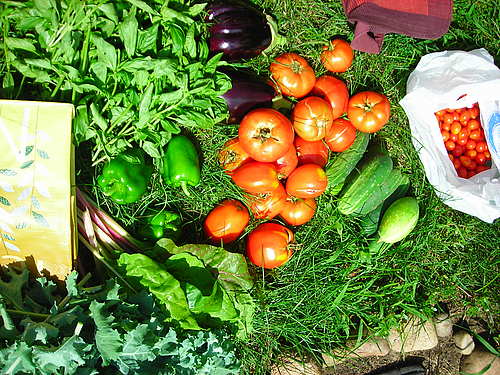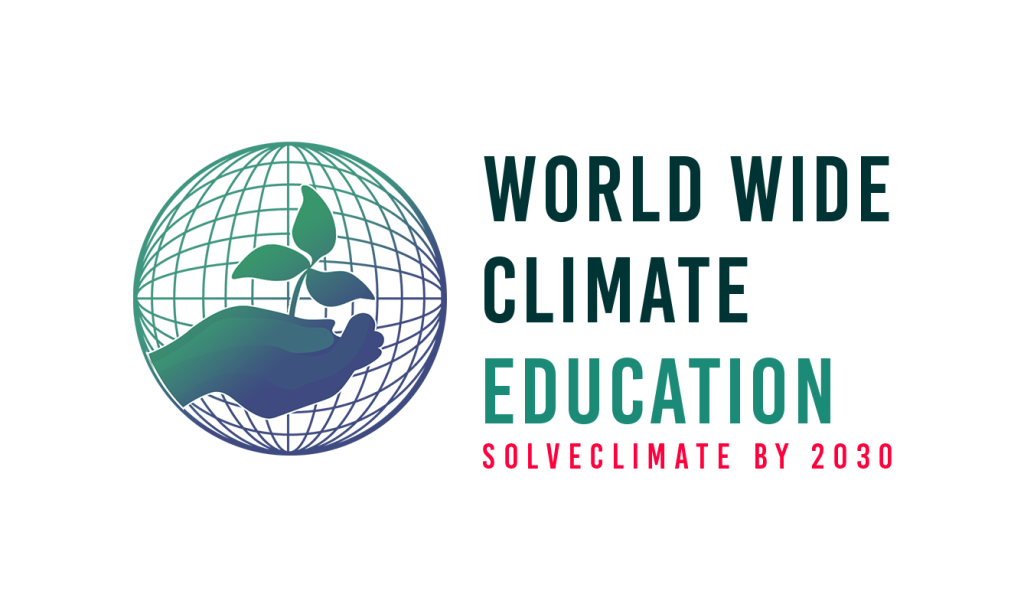
Climate & Justice Education Week
April 20-24th, 2026

Resources
Worldwide Climate Education Week is a global initiative to encourage discussion about the climate crisis and justice on campuses and in educational spaces. Kalamazoo College has participated since 2023! Join more than 40,000 students, faculty, and staff around the world in participating, and help #MakeClimateAClass. The 2026 Worldwide Climate Education Week is scheduled for K’s spring break, so we are hosting our own Climate Education Week during 4th week in spring term.
Check out the resources below!

For Faculty and Staff:
Please join us to #MakeClimateAClass this spring! This means devoting a portion of your regular class (or work) time in your non-climate classes to a discussion of how your field contributes to the understanding of climate change, climate solutions or climate justice.
We request all climate-concerned faculty and staff on campus– from artists to philosophers to scientists– to spend 15-30 minutes on climate in their classes, meetings or events sometime during April 20-24 (Week 4). Participants are not climate experts—just climate-concerned individuals.
If you are interested or need inspiration, feel free to contact one of the faculty organizers: Michael Wollenberg, Ethan Cutler, Binney Girdler, Darshana Udayanganie and Elizabeth Manwell or staff organizers: Sara Stockwood and Greta Farley
Looking for ideas? Check out what faculty taught in 2023, 2024 and 2025.
The 2026 Participants spreadsheet automatically updates after completing the 2026 Faculty Sign Up form.
Faculty Spotlights from previous years:
Dr. Siu-Lan Tan, Psychology
Developmental Psychology & Social Development
I found an excellent reading suitable for my Developmental Psychology and Social Development classes, and engaged them in lively discussion last year. This year, I am adding guided questions in the form of a ‘scavenger hunt’ (as it’s a very rich reading, as you can see from my summary below), to help them find connections to several topics in our class and to their own lives.
This outstanding journal article takes a life-course perspective to show how climate change-related threats can affect every stage of the life course — beginning with risks to prenatal development before one is even born (via higher risks of birth complications related to rising temperature, air pollution, and adverse effects on maternal health); disruptions to early attachment, schooling, and stability for young children due to displacements due to wildfires, floods, droughts; negative effects on mental health caused by increased anxiety, sleep disruption, major depressive disorder in adolescents; and increased side effects of psychotropic medications (triggered by such things as excessive heat interfering with body’s ability to regulate negative effects).
REFERENCE: Vergunst, F., & Berry, H. L. (2022). Climate change and children’s mental health: A developmental perspective. Clinical Psychological Science, 10(4), 767–785.
Dr. Amanda Wollenberg, Biology
Cell & Molecular Biology
The standard topic for the day was ‘cell components and methods of analysis.’ A key slide that I always teach outlines the idea that molecular biologists want to detect certain components within cells, because it gives them information about what those cells are doing at the time. I added the following new slides:
First, a slide pointing out that this approach “is relevant to your future,” with examples of how healthcare providers – public health officials – researchers – all ask versions of this question
Then, a slide broadening it to say “all of us will face ethical issues related molecular biology” (examples of cloning, genetic privacy, etc)…AND that “all of us care about the earth, and molecular biology can help!”
Next, a graphic for the teach-in, to show that this is a big effort across many disciplines, and that we’re going to spend 5-10min on it now
Next, a slide with screen-shots demonstrating links between molecular biology / biologists and climate change (e.g. papers on combating climate change in the lab, issues with single-use plastics, the K Bio department’s doc on divestment) – I verbally emphasized that although many people think molecular bio is all about human health / medicine, whereas ecology is about climate change, ALL biologists that I know – molecular or not – are really passionate about doing what we can to protect this amazing planet
Next, a series of slides highlighting ways students can get involved here on campus (lunches, groups, talks, etc), even if they’re not getting a degree in Env Sci
Finally, a link/bridge back to the main topic, pointing out that we can in fact use the molecular techniques we’ll be learning about to directly study climate change (even aside from getting involved in our own lives) – this was the ‘teaser,’ because after teaching them the techniques that I cover every year, I showed the abstract of the paper where researchers used those techniques to study drought tolerance in plants – which is of course very relevant to coping with climate change.
Dr. Carlos Vázquez Cruz, Spanish
Conversation & Composition
In my literature courses, I ask students to reflect on how the environment influences the characters—both their motivations and their behavior and actions—and to pay close attention to the scenario where the events take place (country, geography, season, and climate).
Once the discussion reaches the point where humans are no longer isolated from nature, I ask students to imagine a natural disaster or other type of catastrophe that threatens or eradicates the environment.
The final step is to assign them to write an alternative version of the scene or story in which the characters receive different external stimuli and, therefore, change their motivations and behavior. In some cases, I allow the students to draw the new scene, but they must accompany it with an explanation in Spanish due to the nature of the course.
Resources for Lesson Planning:
Worldwide Climate Website
- Class examples for various ages and levels of education
- Many subject areas
- Resources and class guides
Bioneers Website
- Bioneers connects people with solutions and each other
- Resources to watch, listen and read
Environmental Studies Resource Guide
- Kalamazoo College Library resource guide for Environmental Studies
For Students
You are the best way to get faculty and staff involved in the Worldwide Climate Education Week!
Your own voice and desire for action can help inspire others to take that leap, too. By encouraging your professors and departments to participate you’re helping fulfill our Climate Action Plan and are showing that we want K’s education to be climate-conscious! Take a look below at some ways you can encourage your professors and departments to get involved.
- Approach your professor before/after class, or during office hours. You can inform them that K is joining hundreds of universities around the world by participating in Global Climate Justice and Education Week. Let them know that this movement is important to you, and that it would mean a lot for our campus/your department, etc. to be a part of it!
- You can explain that the Climate Education Week involves taking 15 minutes (or more) from one class during 4th week of spring term to talk about a climate-related topic in their field. They can get as creative as they want with what they do or how they choose to present! They can commit to #MakeClimateAClass by filling out the Faculty Sign-Up Form.
- Do you have ideas about how their class might relate? Feel free to share! Professors want to hear what you’re passionate about, and you can collaborate with each other to brainstorm.
- If they have further questions, you can direct them to this page, or to the Worldwide Climate Education Week page.
